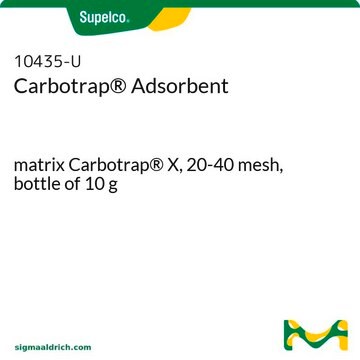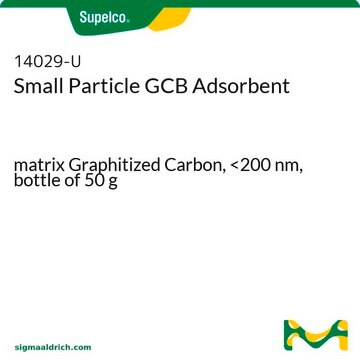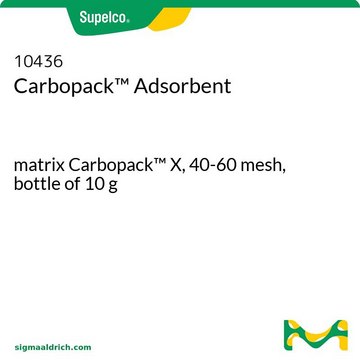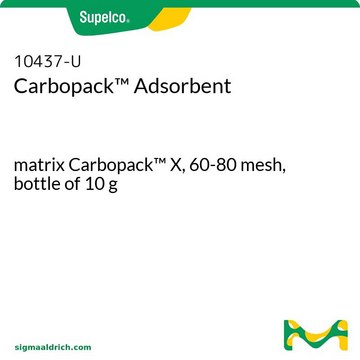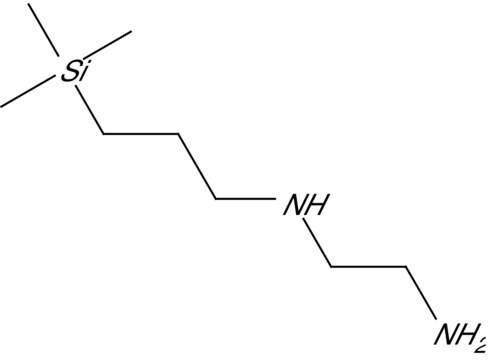추천 제품
제품명
Carbotrap® Adsorbent, matrix Carbotrap® C, 20-40 mesh, bottle of 500 g
제품 라인
Carbotrap®
양식
granular
포장
bottle of 500 g
기술
LPLC: suitable
gas chromatography (GC): suitable
표면적
~10 m2/g
Matrix
Carbotrap® C
기질 활성군
carbon
입자 크기
20-40 mesh
공극 크기
~0 cm3/g macroporosity
~0 cm3/g mesoporosity
~0 cm3/g microporosity
~0 Å pore diameter
벌크 밀도
~0.70 g/mL (free fall density)
분리 기술
reversed phase
유사한 제품을 찾으십니까? 방문 제품 비교 안내
일반 설명
- Granular
- Friable
- Used for molecules with an analyte size relative to C3-C20+ n-alkanes
- Hydrophobic (can be used in high humidity environments)
Generally, GCB adsorbents offer weaker relative adsorptive strength compared to carbon molecular sieve (CMS) adsorbents, and similar relative adsorptive strength compared to spherical graphitized polymer carbon (SGPC) adsorbents. Our Carbotrap products are a type of GCB adsorbent.
- Particles are 20/40 mesh
- These large particles allow high flow rates without excessive pressure drops
For more information about any of our specialty carbon adsorbents, please visit sigma-aldrich.com/carbon
법적 정보
Storage Class Code
11 - Combustible Solids
WGK
nwg
Flash Point (°F)
Not applicable
Flash Point (°C)
Not applicable
개인 보호 장비
Eyeshields, Gloves, type P3 (EN 143) respirator cartridges
가장 최신 버전 중 하나를 선택하세요:
문서
Carbon Molecular sieves (CMS) are a versatile range of adsorbents that can be tailored for specific applications. Supelco® scientists have been synthesizing synthetic CMS carbons for several decades, starting from tailoring of the starting polymers/copolymers, to modifying the final properties of the subsequent CMS carbon.
자사의 과학자팀은 생명 과학, 재료 과학, 화학 합성, 크로마토그래피, 분석 및 기타 많은 영역을 포함한 모든 과학 분야에 경험이 있습니다..
고객지원팀으로 연락바랍니다.